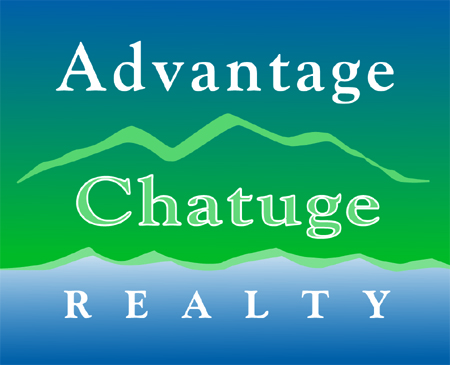Guide to Smart Mountain Property Purchases
Buying a mountain cabin in Cherokee, Clay, Towns, Union, or Fannin Counties? The Blue Ridge mountain property market offers stunning views and serene living, but protecting your investment requires careful planning. With minimal building codes in western North Carolina and North Georgia, you need a knowledgeable realtor like Gary Ward at Advantage Chatuge Realty. This 2025 guide covers key factors—site stability, septic systems, water, and more—to ensure your dream home is a sound investment.
Site Stability for Mountain Homes
Building a cabin starts with stable land. Slope, soil type, and drainage determine if a property in Cherokee or Fannin Counties can support a home. Clay soils, common in Clay County, NC, expand when wet and shrink when dry, stressing foundations. A 2025 soil survey via USDA’s Web Soil Survey (nrcs.usda.gov) or your local Soil and Water Conservation District identifies risks. For more on ensuring a solid foundation, check our guide on stable mountain home construction. In Towns County, GA, steep slopes near Hiawassee require grading permits (NC DEQ, 2024). Work with a builder to design foundations for local conditions, especially in Union County’s rocky terrain. Gary Ward can connect you with trusted professionals.
Sewage Disposal Challenges
About 80% of mountain homes in western NC and North GA rely on septic systems, but 85–90% of land has limitations like shallow soils or steep slopes (NC DEQ, 2024). Before buying in Cherokee County, NC, or Blue Ridge, GA, ensure the site passes a percolation test, required by county health departments. Alternative systems, like mound or drip irrigation, are common in Clay County but cost $15,000–$30,000. Permits are mandatory before occupancy, so evaluate septic suitability early. Gary Ward at Advantage Chatuge Realty guides buyers through this process.
Drinking Water Sources
Reliable drinking water is critical. In 2025, mountain homes use municipal systems (e.g., Blue Ridge, GA), small community supplies, or private wells/springs. Municipal systems in Fannin County serve urban areas, while rural Towns County relies on wells, unregulated by the state (NC DEQ, 2025). Test private wells for contaminants like E. coli, per EPA guidelines (epa.gov). In Union County, GA, shared springs are common but require legal agreements. Gary Ward ensures water sources are verified before purchase.
Stormwater Management Regulations
Stormwater runoff from rain or snowmelt increases flooding risks in mountain communities. In 2025, NC and GA enforce low-impact development (LID) rules to reduce erosion (NC DEQ, GA EPD). In Cherokee County, NC, permeable driveways are encouraged, while Fannin County, GA, requires retention ponds for new developments. Check local ordinances before building to avoid fines. A well-planned site in Clay County minimizes stream damage, preserving property value.
Road Access and Maintenance
Poor roads in snowy or wet conditions can isolate homes in Towns or Union Counties. Private roads, common in Fannin County, require homeowner or HOA maintenance, costing $1,000–$5,000 annually. Confirm legal access to state roads via deeds, especially in Cherokee County’s rural areas. Erosion control permits are needed for new roads (NC DEQ, 2025). Gary Ward reviews access rights to prevent surprises.
Flood Plain Risks
Western NC’s high rainfall, worsened by 2024’s Hurricane Helene, makes flood plains a concern. FEMA’s 2025 Risk Rating 2.0 (fema.gov) maps show flood-prone areas in Clay and Cherokee Counties. In Towns County, Lake Chatuge properties face risks. Check flood maps at county offices and ask locals about past floods. Flood insurance, often required, costs $1,200–$3,000 yearly.
Land Stewardship Practices
Preserving the Blue Ridge’s beauty enhances property value. In 2025, NC Land Conservancy programs (nclandtrusts.org) protect streams and rare plants in Fannin County. Avoid clearing springs or large trees in Union County. Native landscaping in Clay County reduces erosion. Work with builders to preserve natural features, as Gary Ward advises.
Solar Energy Potential
South-facing slopes in Cherokee or Towns Counties maximize solar potential, reducing heating costs. In 2025, NC and GA offer tax credits for solar panels (dsireusa.org). North-facing slopes in Fannin County have limited solar viability. Solar systems cost $10,000–$25,000 but save $500–$1,500 yearly. Gary Ward helps identify solar-friendly sites.
Mineral Rights Considerations
In NC and GA, mineral rights can be severed from surface rights (NC DEQ, GA DNR). In Clay County, NC, old mining leases may allow surface disruption. Check deeds and hire a title attorney before buying in Cherokee or Union Counties. Gary Ward ensures transparency in property records.
Dark Skies and Ridge Laws
Ridgetop homes in Fannin or Towns Counties can disrupt scenic views. NC’s 2025 Ridge Law limits buildings over 40 feet on protected ridges (NC DEQ). Fannin County, GA, has lighting ordinances for dark skies. Check local planning departments to comply and maintain property appeal.
FAQ: Buying Mountain Property in 2025
- What’s the first step in buying mountain property? Evaluate site stability and septic suitability with a realtor like Gary Ward.
- How do I check flood risks? Review FEMA maps at county offices or online (fema.gov).
- Are solar panels worth it? On south-facing slopes, they offer long-term savings with 2025 tax credits.
- Why check mineral rights? Severed rights allow mining, impacting your land’s use and value.
Take Action with Confidence
Ready to buy mountain property in Cherokee, Clay, Towns, Union, or Fannin Counties? Start with a free home valuation in western NC and North GA to understand market trends. Contact Gary Ward at Advantage Chatuge Realty for expert guidance. Protect your investment today.




